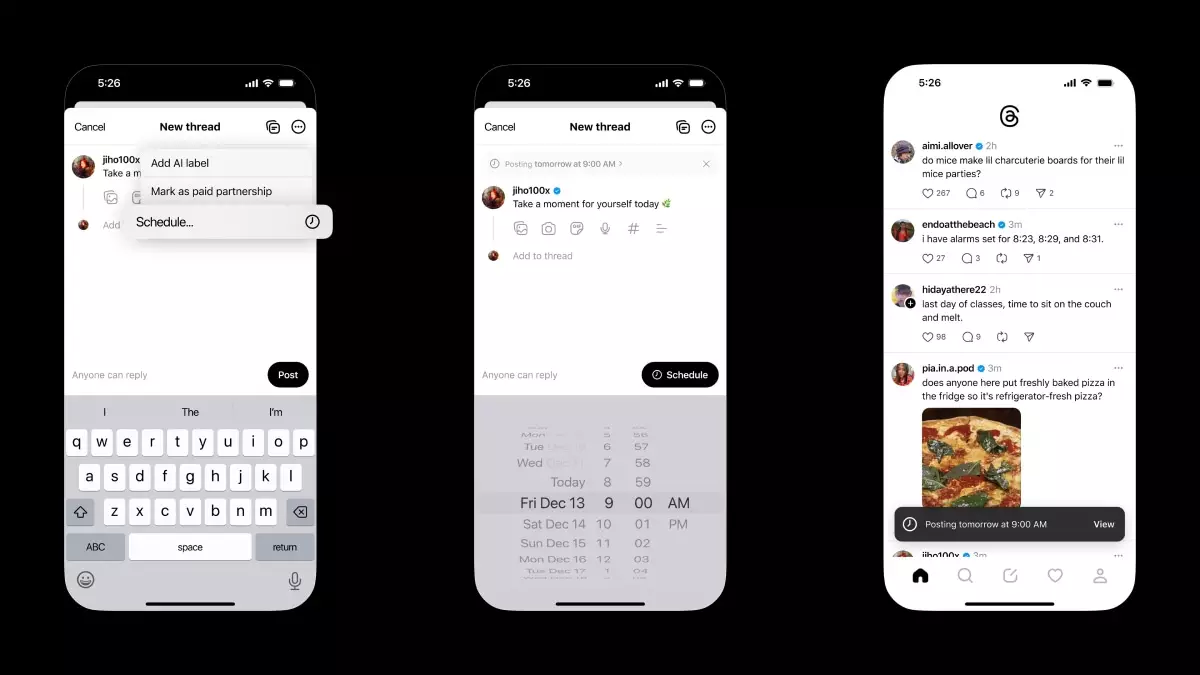Recently, Meta Platforms, Inc. has ignited interest with its plans to enhance user experience across its social media platforms, Threads and Instagram, by introducing new scheduling capabilities. As the demand for time-management tools in social networking increases, these features are likely to be welcomed by users who seek more control over their online interactions. While there remains no confirmed timeline for the release of these enhancements, the future implications for user engagement are significant.
The latest development for Threads is the proposed functionality that will enable users to schedule their posts in advance. Currently being tested with a select group of users, this feature represents a strategic response to the evolving behavior of social media users, who increasingly desire the ability to pre-plan their content. According to Meta, users will be able to schedule posts by navigating through the Post composer and selecting their desired date and time. Scheduled posts will be stored in a drafts folder and can be edited or deleted before they go live. This flexibility is crucial, as it allows users to remain dynamic in an ever-changing digital landscape.
The move to incorporate scheduling capabilities into Threads demonstrates Meta’s commitment to enhancing user convenience and control. The platform has already introduced other features designed to improve search functionalities, suggesting a forward-thinking approach to user experience. However, the lack of a definitive timeline for the rollout of the scheduling feature raises questions about Meta’s prioritization of updates across its platforms.
Parallel to Threads’ anticipated scheduling post feature is Instagram’s discreet rollout of a scheduling option for direct messages. Initiated by social media expert Lindsey Gamble, this feature allows users to compose messages and choose a specific date and time for delivery. While this scheduling capability enhances user engagement within DMs, it also adheres to a critical limitation—only text-based messages can be scheduled, leaving multimedia messages excluded. This decision could affect how users connect via DMs, as visual content often plays a significant role in social media communications.
The addition of scheduling for DMs marks a significant advancement in how users interact on Instagram. As users become more reliant on messaging for communication, being able to plan interactions ahead of time can support strategic engagement, especially for businesses and content creators who utilize Instagram for brand promotion.
Both new scheduling functionalities signal a shift in how social media platforms cater to users’ needs. These features acknowledge a growing demand for flexibility and preparation in an online context. As users increasingly juggle various personal and professional commitments, being able to plan when content is shared or messages are sent enhances the relevance and utility of these platforms.
Furthermore, this evolution aligns with the general trend of digital tools seeking to innovate user interactions, adding layers of convenience to everyday social networking. Moving forward, it will be interesting to observe how users adopt and adapt to these new features, as well as how they may influence content creation and engagement strategies across Threads and Instagram. While Meta’s proposed features are still under testing, their potential to enhance user experience significantly cannot be understated.

